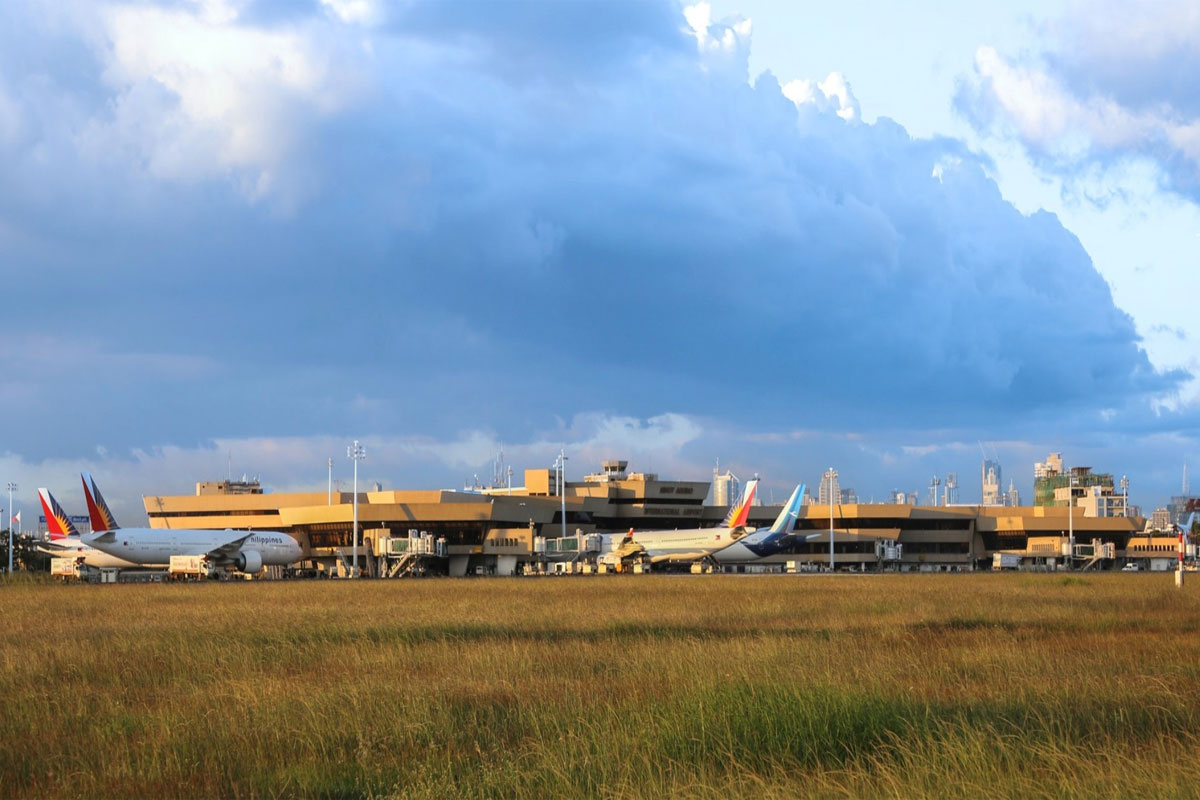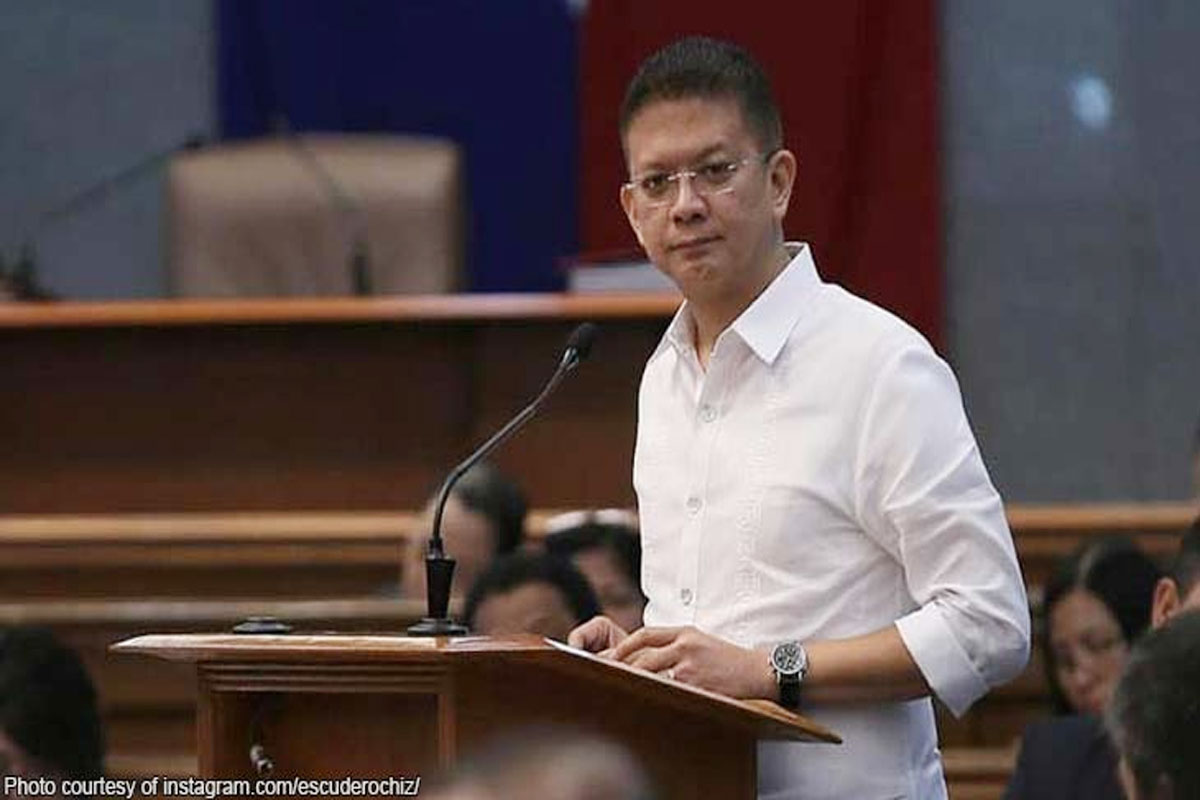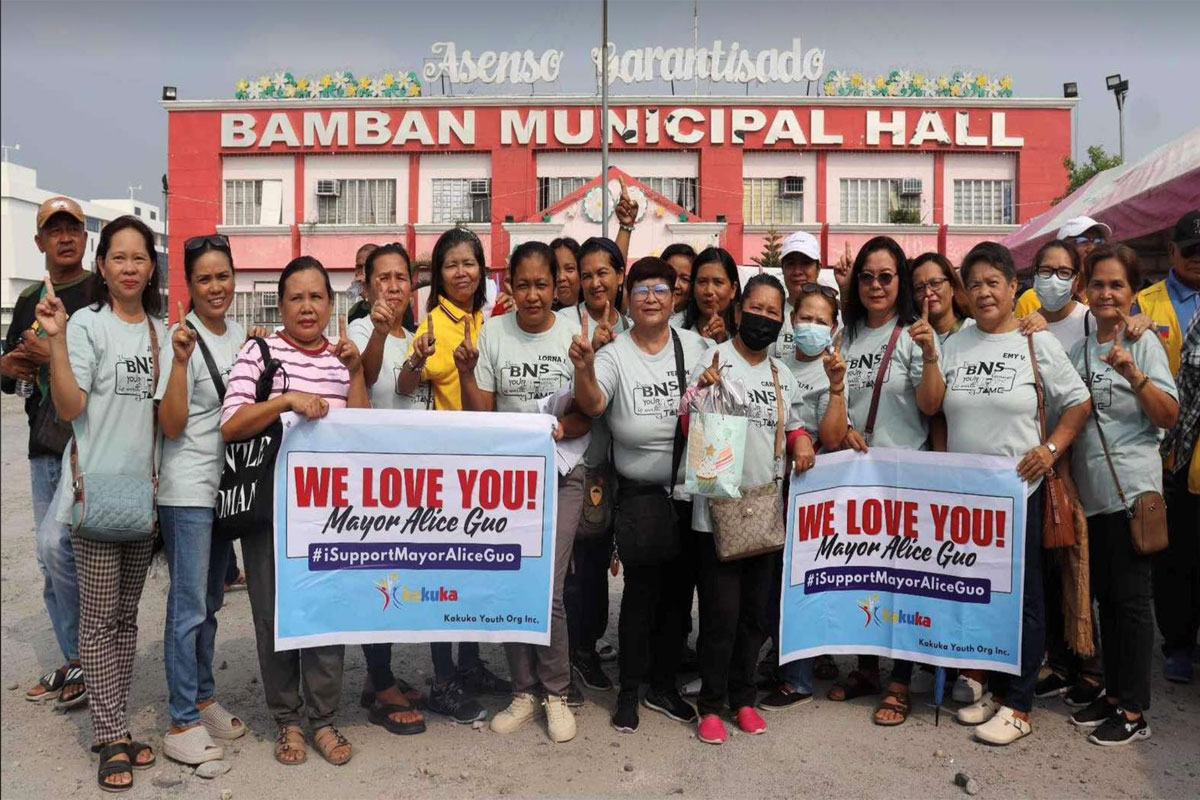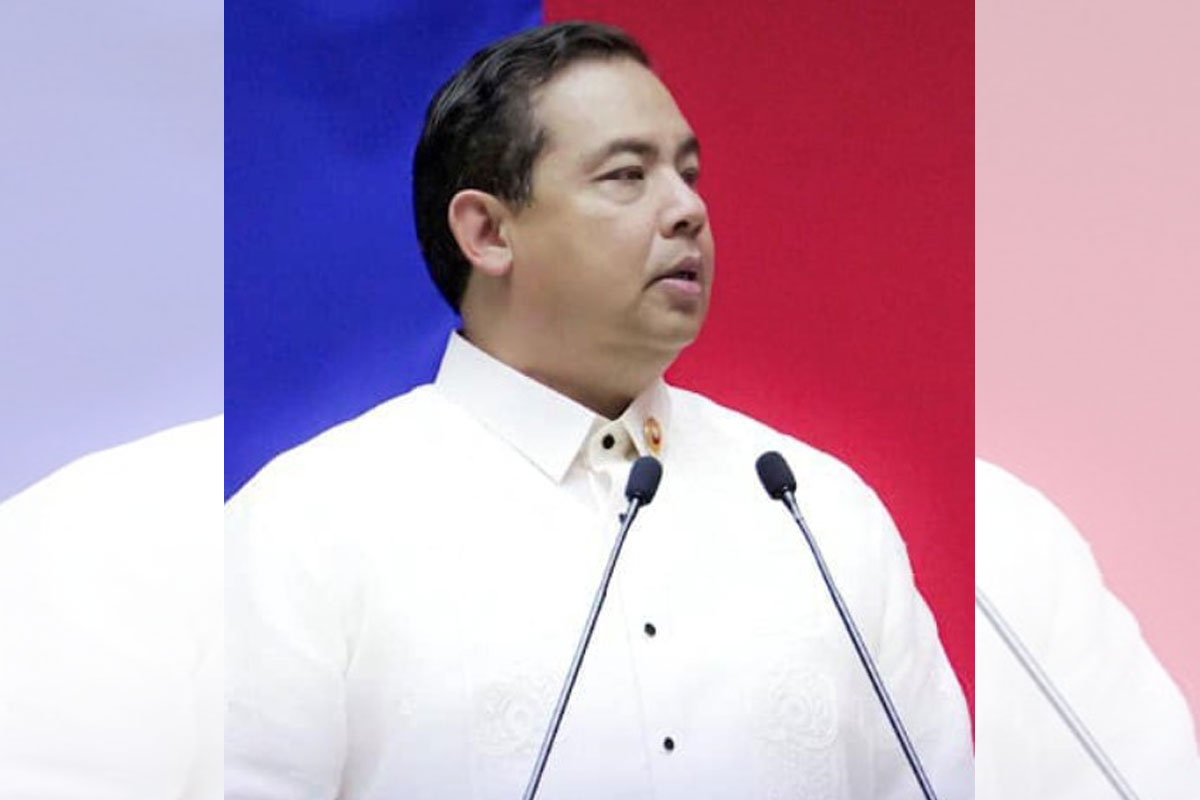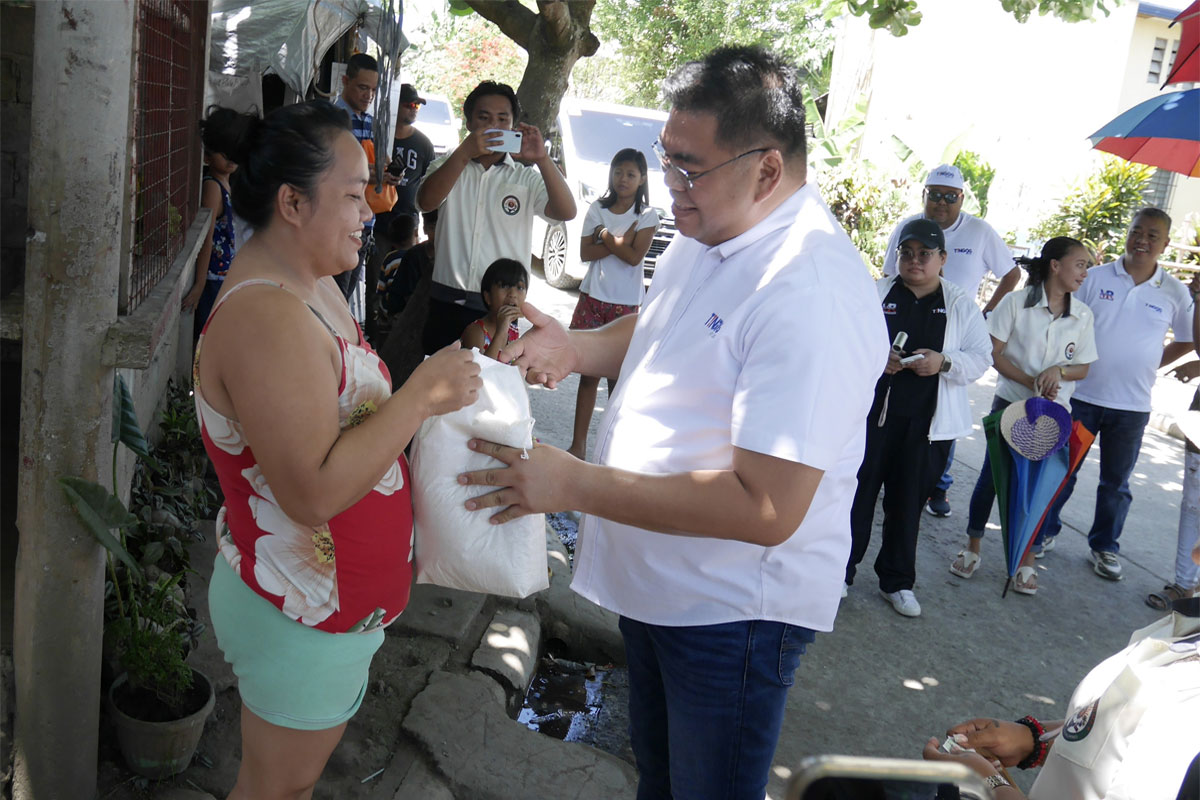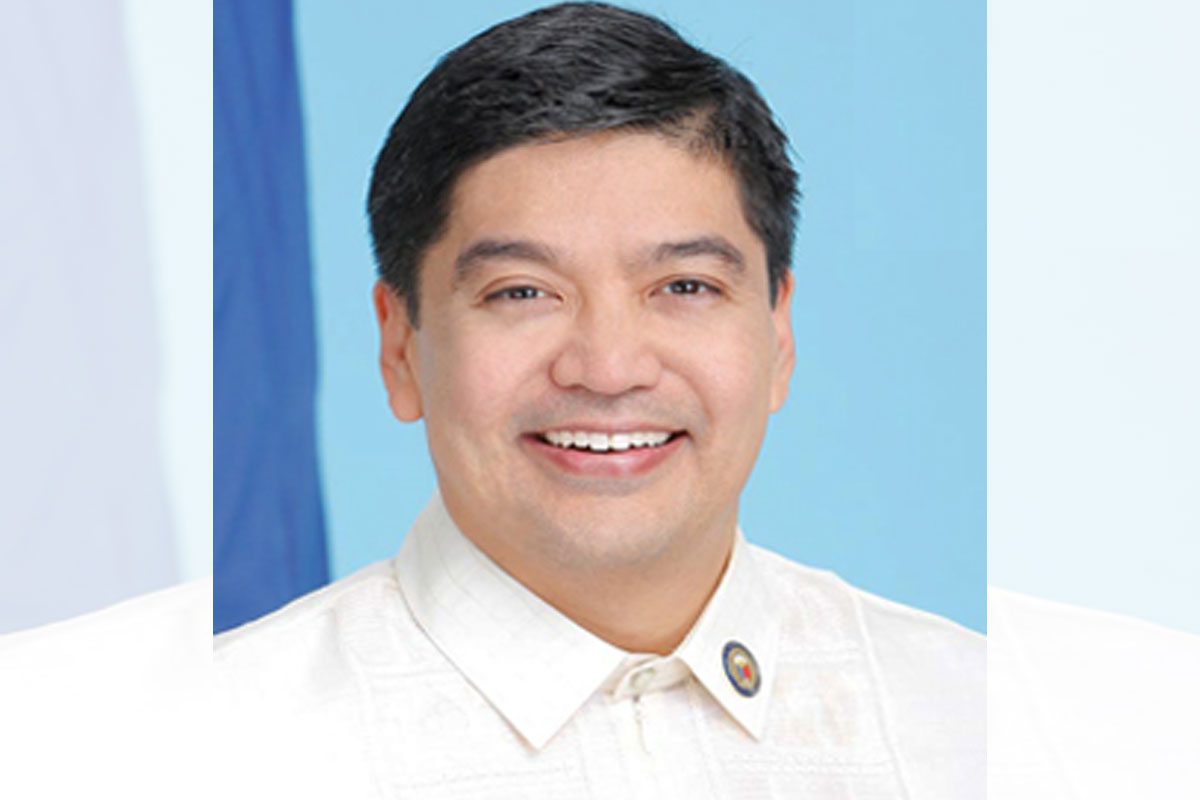
FDI plunge is best argument for constitutional amendments
To scrap restrictive provisions spooking investors—Villafuerte
THE nonstop plunge in incoming foreign direct investments (FDIs) to the Philippines is confirmation that our country will never become an investment magnet, lest we rid the Constitution of its restrictive economic provisions that have apparently been spooking investors, according to Camarines Sur Rep. LRay Villafuerte.
“If we do nothing to reform our 36-year-old Constitution by ridding it of its antiquated protectionist provisions restricting foreign ownership of, or participation in, Philippine businesses, the odds will remain against our country becoming an investment magnet in the region, despite its status as among Asia’s fastest-growing economies pre- and post-pandemic,” Villafuerte, one of the lead advocates in the economic amendments via the Constitutional Convention (Con-Con) approach, said.
There is no better proof of this sad reality, he said, than the latest Bangko Sentral ng Pilipinas (BSP) data showing that FDI inflows dropped to a 20-month low in January to $448 million, or almost half (45.7%) of the $824-million investments that entered the country in the same month last year.
The January amount is lower than the $634 million-worth of net FDIs in December 2022, and is the lowest since the $426-million investments reported in May 2021, bared the same FDI data released a week ago by the BSP.
The bulk of the equity capital placements for January came from Japan, Singapore and the United States (US), and invested mostly in the manufacturing, financial and insurance, and real estate sectors.
Before the release of the new FDI data, Villafuerte recalled that the BSP had reported that the volume of net foreign investments retreated by 23.2% from $11.98 billion in 2021 to $9.2 billion in 2022.
He said that even President Marcos’ economic managers apparently expect no significant reversal of this FDI downtrend in the near future as they had reportedly slashed their FDI target for 2023 to $11 billion from the original $12.5 billion.
Villafuerte is president of the National Unity Party (NUP), the second biggest bloc in the House of Representatives whose 45 members all voted before the March 24-May 7 legislative break for both Resolution of Both Houses (RHB) N0. 6 proposing constitutional reform via a hybrid Con-Con, comprising elective and appointive delegates, and House Bill (HB) No. 7325 that will be RHB 6’s implementing law.
NUP’s 45 members are among the 301 or almost 96% of the House’s 114 members who had voted for the twin measures, indicating the overwhelming support for constitutional reform in the bigger chamber under the leadership of Speaker Martin Romualdez.
HB 7325 had consolidated four Con-Con bills introduced in the chamber, including HB 4926 authored by Villafuerte.
For Villafuerte, the continuous decline in FDIs despite our domestic economy’s strong post-pandemic recovery under the Marcos administration “punctures the argument by critics of Charter Change that constitutional reform is no longer needed to attract more FDIs because former President Duterte had already signed four pro-business laws designed to make the Philippines far more attractive to the international investor community.”
These four investor-friendlier measures that are being cited by those who argue that constitutional reform is unnecessary are the four measures written by the 18th Congress—the Corporate Recovery and Incentives for Enterprises Act (CREATE); and the amendatory laws to the Public Service Act (PSA), Foreign Investments Act (FIA) and the Retail Trade Liberalization Act (RTLA).
A co-author of these four laws, Villafuerte pointed out that “the Philippines will have difficulty keeping up with, let alone overtake, our Southeast Asian neighbors that have become excellent investment hubs ahead of us, despite such investment-friendlier measures and our country’s pre- and post-pandemic status as one of the region’s economic outperformers, because these four new laws stopped short of letting foreigners own or control 100% of certain major local enterprises.”
He pointed out that the National Economic and Development Authority (NEDA) announced last March the release of the implementing rules and regulations (IRR) of Republic Act (RA) No. 11659 or the amended PSA Law.
The NEDA said in a March 20 statement that upon its effectivity last April 4, the amended PSA “shall enable the liberalization of key public services by allowing full foreign ownership of businesses in select industries …”
But Villafuerte noted that the NEDA itself confirmed in the same March 20 statement that the Constitution’s foreign ownership cap remains in certain businesses, as “public service utilities such as electricity transmission and distribution, water and wastewater pipeline distribution system including sewerage, petroleum and petroleum products pipeline transmission systems, seaports, and public utility vehicles remain subject to the 60-40 percent foreign equity limitation.”
Hence, said Villafuerte, “Doing away with the restrictive economic provisions of the Constitution to clear the way to greater FDI inflows is a matter of urgency, given that there are economic experts who believe the low volume of net investment inflows last January will likely be the norm this year in the face of headwinds such as elevated inflation, high interest rates and a weakening global economy.”
China Banking Corp. chief economist Domini Velasquez, for example, was quoted in a media report as saying that: “The weak net FDI in January bodes poorly for the rest of the year. A weaker global economy and higher interest rates could have deterred investors and will likely continue to do so for the first half of the year, at least.”
Villafuerte said that another thing that could hurt prospects for high Philippine growth this year is the projected continued spike in global oil prices, brought about by the recent move by Saudi and the rest of the members of the Organization of Petroleum Exporting Countries (OPEC) plus Russia to collectively cut their total daily output by 1.2 million barrels, beginning in May, as a way to jack up the cost of petroleum products that have fallen lately amid a feared global recession.
“Higher fuel prices will further accelerate the sticky elevated inflation, which, in turn, will dampen household consumption that is the single biggest driver of our domestic growth,” he said.
He said, “This bleak scenario gives us Charter Change advocates in the Congress more reason to keep pushing for constitutional reform this year, with the ultimate goal of attracting greater investments from abroad to keep our post-pandemic economy on its upward trajectory.”
“Large doses of foreign investments—by way of constitutional reform—are needed because such capital infusions will generate greater economic activity, create more jobs, and raise incomes and living standards of Filipinos,” Villafuerte said.
“President Marcos made the bold—and correct—decision last year to relax health protocols and other Covid-related restrictions in order to lead our economy back to normalcy and send the clear message to overseas investors and tourists that the Philippines has reopened for business,” he said.
“It will be such a waste of the Marcos government’s exceptional push for a strong post-pandemic economic recovery if we are to do nothing to support that, instead of complementing such effort with a long-needed makeover of our Constitution to let a lot more foreign investors help sustain our drive for robust and inclusive growth,” he added.
Earlier, Villafuerte had cited a published commentary by National Scientist and University of the Philippines (UP) professor emeritus Raul Fabella about an investment scandal brought about by the 60-40 provision in the Constitution that limit foreigners to 40% ownership of Philippine businesses while Filipinos must retain at least 60% of these enterprises.
Villafuerte said the scandal involving the construction of the Ninoy Aquino International Airport Terminal 3 (NAIA 3) was an example of one reason why the 60-40 cap in our Constitution has apparently been putting of foreign investors.
As pointed out by Fabella, he said the construction of NAIA 3 had attracted foreign interests, including the German firm Fraport AG Frankfurt Airport Services Worldwide (Fraport) that eventually had to partner with the Philippine International Air Terminals Co. (PIATCO) because the Constitution barred it from owning and running the airport.
Villafuerte said Fabella had recalled that the local partner later on got involved in corruption cases that led to lawsuits and the mothballing of NAIA 3 for a decade since its delivery in 2002.
In a 2016 arbitral ruling by the Supreme Court, the government was ordered to indemnify PIATCO P25 billion for expropriating NAIA 3, which was, according to Fabella, the cost of the foreign ownership cap in just this one legal case.
Before the legislative break, Villafuerte had appealed to senators to give Charter Change a chance and to attend to it “with a similar sense of urgency, out of consideration for its supermajority support in the House of Representatives, and given that a majority of them were once members of this bigger chamber.”
Thirteen incumbent senators had been elected to the House at one time or another in the past.
Zubiri himself had been elected to the House for three terms, said Villafuerte.
Villafuerte said he had batted for the Con-Con option so constitutional reform wouldn’t suffer the same fate that had befallen past initiatives to amend the Charter, which was to get shot down by senators who feared the Con-Ass mode could marginalize them in the voting, in light of the protracted debates over whether the 1987 Constitution requires members of the Senate and the House to vote separately or jointly on proposed amendments.
He had hoped that members of the Senate committee on constitutional amendments and revision of codes could find time this congressional break to weigh this panel’s draft report on the need to amend the restrictive economic provisions of the Constitution.
Although this committee chaired by Sen. Robinhood Padilla had sought senator-members’ approval of its report endorsing Charter Change via the Constituent Assembly (Con-Ass) option—as against the House’s twin measures advocating the Con-Con route—Villafuerte said he nonetheless welcomed this development as it will “keep the process of constitutional reform going in the 19th Congress.”
“As what I have said before the congressional break, it’s beside the point whether the Senate would take a look at improving our Constitution by way of a Con-Con or Con-Ass. What is important at this stage is for the Senate to consider amendments to our flawed Constitution, so the 19th Congress can come up with a consolidated measure green-lighting a Charter makeover, preferably before 2023 is over.”
Padilla revealed before Holy Week that his office had already distributed copies of his draft report to all senators, and expressed the hope that “they would read it.”
Even if the Senate committee were to end up approving the Padilla-drafted committee report endorsing the Con-Ass option, Villafuerte said “this would keep the ball rolling” on Charter Change, more so because Speaker Romualdez himself had said he was open to considering any Senate proposal on how to amend the Constitution.
Before the Speaker aired in a March 24 statement his openness to discussing any mode to amend the 1987 Charter, Villafuerte had already expressed the same position, and proposed that Charter Change proponents in both the Senate and the House meet during the six-week congressional break to try finding “common ground” on how to pursue long-needed constitutional reform this year.
“Speaker Martin’s openness to any Senate proposal on how to pursue constitutional reform, despite the supermajority support in the House for a Con-Con to pursue the makeover, augurs well for an early meeting between Charter Change proponents in both chambers to try finding a common ground on how to do it before the year is over,” Villafuerte said.




